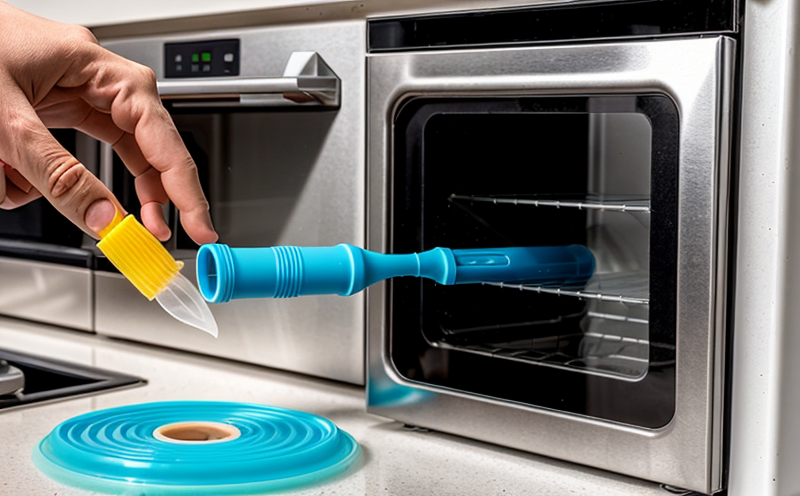ISO 11357 DSC Thermal Analysis Testing of Household Plastics
The International Organization for Standardization (ISO) 11357 specifies the procedure for determining the heat capacity, specific heat, and thermal transitions of plastics using Differential Scanning Calorimetry (DSC). This testing method is particularly crucial in the household plastics sector where compliance with regulatory standards ensures product quality and safety.
Thermal Analysis plays a key role in optimizing the manufacturing processes for household plastics by providing insights into their behavior under different temperature conditions. Understanding these properties helps manufacturers identify potential issues early on, leading to improved product performance and reliability. For instance, DSC can reveal critical information about crystallization temperature, melting point, glass transition temperature, and heat capacity which are essential parameters when dealing with materials like polyethylene (PE), polypropylene (PP), polystyrene (PS), and other common household plastics.
The process involves precise measurement of the amount of heat required to change the temperature of a sample and a reference material. By comparing their heating curves, accurate data on thermal transitions can be obtained. This information is vital not only for quality assurance but also in developing new products that meet both functional requirements and sustainability goals.
Our laboratory adheres strictly to ISO 11357 guidelines ensuring consistent results across all tests performed under this standard. Our team of experts ensures thorough specimen preparation, calibration checks, and data interpretation providing reliable outputs that are crucial for decision-making processes within your organization.
- Accurate measurement of heat capacity
- Determination of specific heats
- Evaluation of thermal transitions including crystallization temperature, melting point, glass transition temperature
- Compliance with ISO 11357 standards
The results from our testing can help you optimize your production processes, ensure product quality and safety, enhance material selection based on thermal performance metrics, and make informed decisions regarding sustainable practices. This service is particularly beneficial for those involved in household plastic manufacturing who must adhere to strict industry standards.
Customer Impact and Satisfaction
Implementing ISO 11357 DSC thermal analysis into your quality control protocols has numerous benefits. It allows you to identify potential defects early in the production cycle, thereby minimizing waste and reducing costs associated with rework or scrapped products. By ensuring that all household plastics meet stringent temperature stability criteria, you can enhance customer satisfaction by delivering consistently high-quality products.
Our comprehensive testing services provide detailed reports that offer valuable insights into material behavior under various conditions. This knowledge enables your company to stay ahead of competitors by continuously improving product design and performance. Additionally, compliance with international standards like ISO 11357 enhances brand reputation and builds trust among consumers who value transparency and reliability.
Our commitment to excellence extends beyond just meeting basic regulatory requirements; we go above and beyond to ensure that every test conducted adheres strictly to industry best practices. This dedication ensures that our clients receive accurate, reliable data which they can use confidently in making strategic business decisions.
Environmental and Sustainability Contributions
By incorporating ISO 11357 DSC thermal analysis into your environmental management strategy, you contribute significantly towards reducing waste and promoting sustainable practices within the household plastics industry. Understanding how different materials behave under varying temperatures allows for better lifecycle assessment of products, enabling more informed choices about which raw materials to use.
Our testing helps identify those that are most suitable for recycling or upcycling at end-of-life stages, thus extending resource utilization and minimizing environmental impact. Furthermore, by ensuring that household plastics comply with thermal stability requirements set forth in ISO 11357, we support efforts aimed at reducing energy consumption during manufacturing processes.
Through our rigorous testing procedures, you can rest assured knowing that your products are not only safe but also environmentally responsible. This aligns perfectly with global trends towards increased sustainability consciousness and regulatory pressures to adopt greener practices.
Competitive Advantage and Market Impact
- Early identification of defects through precise measurement of heat capacity and specific heats
- Enhanced product quality leading to increased customer satisfaction
- Optimized production processes resulting in reduced costs
- Compliance with international standards boosting brand reputation
- Identification of suitable materials for recycling or upcycling enhancing resource utilization and minimizing environmental impact





